Nine Undergraduate Juniors and Seniors Selected as First Cohort of Mo’s Policy Scholars
The students will work directly with a Udall Center faculty mentor between the months of September and November 2023 to learn about how they can have a direct impact on policy with their work.
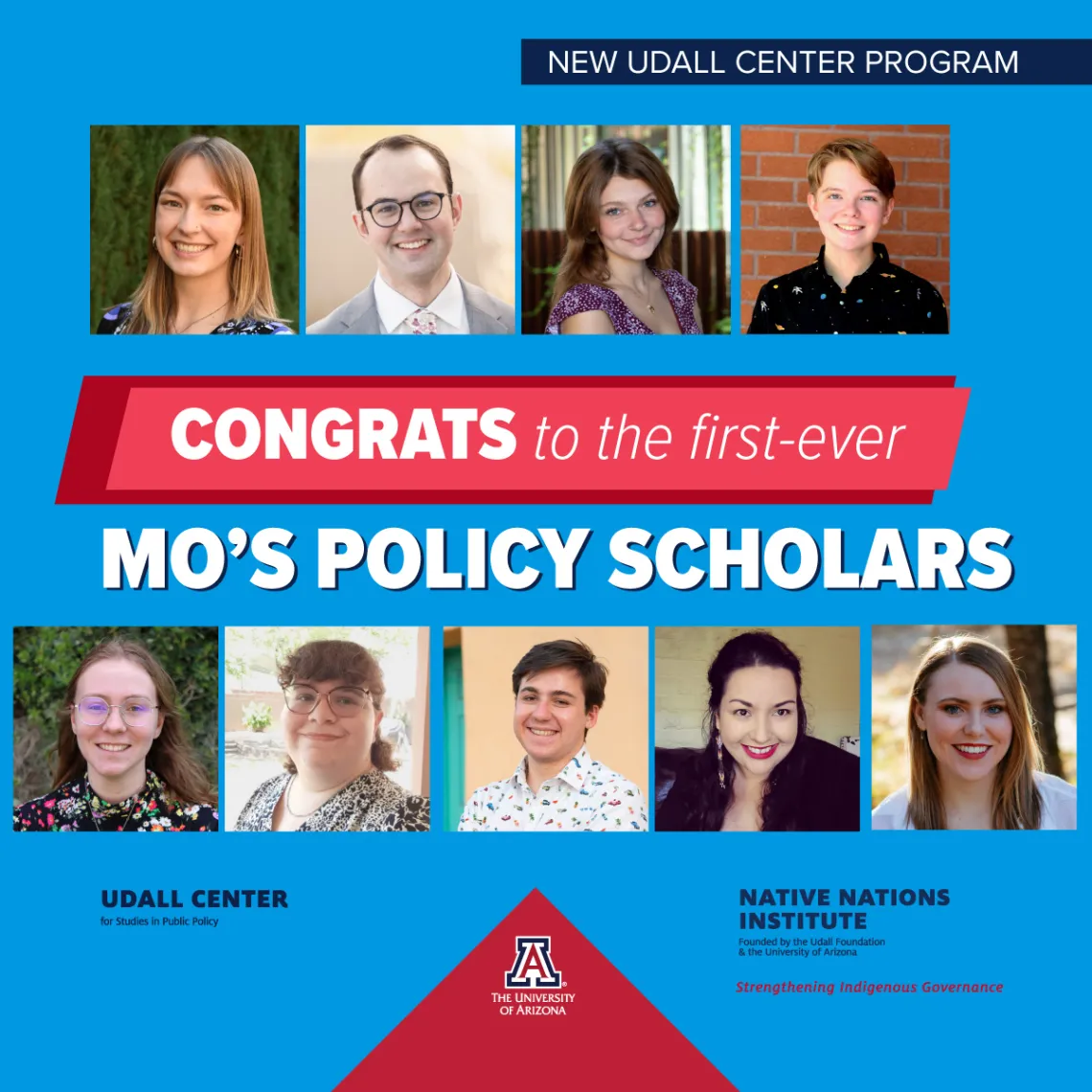
A new, paid mentoring program for undergraduate students at UArizona welcomed its first cohort of students this month.
Nine juniors and seniors were selected to participate in the inaugural cohort of Mo’s Policy Scholars. The program was named in honor of Congressman Morris K. Udall, who represented Arizona in the nation's capital from 1961-1991.
Each scholar will be paired with a faculty researcher from the Udall Center for Studies in Public Policy during the fall academic semester with whom they will work to gain firsthand experience participating in a professional research project alongside an established expert in their chosen field of study.
Scholars will also participate in monthly educational programs with their fellow cohort members and will complete self-paced learning activities to help them get acquainted with the work of the Udall Center and the public policy legacy of Congressman Udall.
Read on to meet the first cohort of Mo’s Policy Scholars and learn more about the projects each will be working on during their tenure in the program.
Meet the 2023 Mo’s Policy Scholars
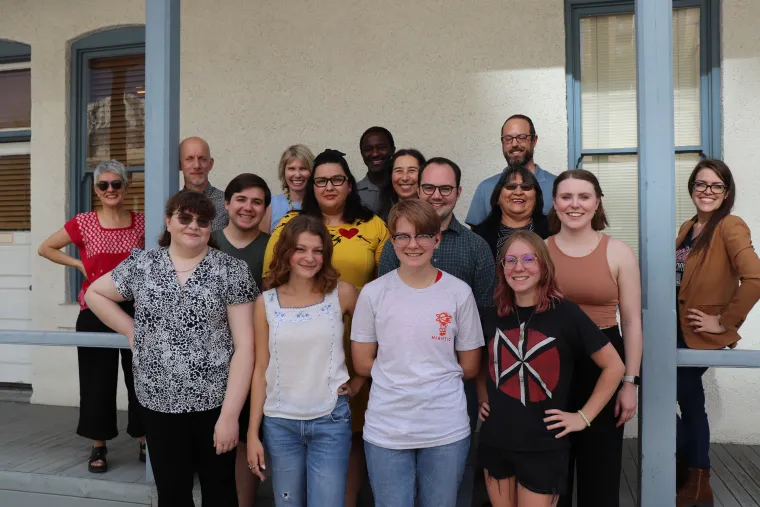
Eight of the nine students selected as Mo's Policy Scholars had the chance to meet their mentors during a program reception in late August, 2023.
Catherine Broski
Senior; Sociology & Geography (Double Major)
Academic Interests: Environmental Justice, Climate Action
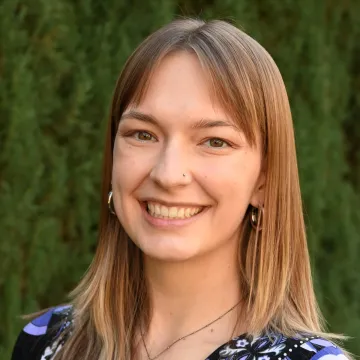
“As I see it, academics are no smarter or more valuable than any other person; they simply are equipped with a different set of skills with which to understand and solve problems. I want to learn from a research professional who engages and collaborates with the community to examine and address social inequities.
Project: Unveil Environmental Justice
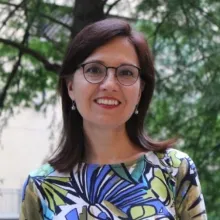
Adriana Zuniga-Teran
Mentor: Adriana Zuniga-Teran, Assistant Research Professor of Environmental Policy Programs; Assistant Professor, School of Geography, Development and Environment
Ms. Broski will work with Dr. Zuniga-Teran as an assistant on a mentoring program designed to help middle school students analyze and identify environmental justice issues in the Tucson community. Part of her work will involve helping a school teacher to lead citizen science assessment activities in local parks, public spaces and streets to empower students to complete research that could have a real, tangible impact on their local community.
Lilith Clark
Junior; Philosophy, Politics, Economics and Law (PPEL)
Academic Interests: Impact of historical events on contemporary society
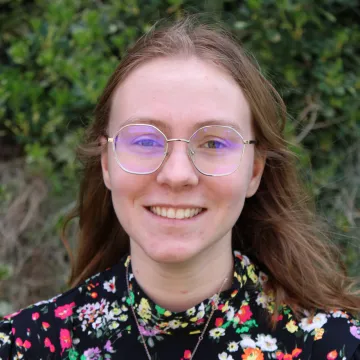
“Environmental policy touches every area of life today, as it relates to other issues in society such as poverty, healthcare, natural disasters, and racial justice. My academic goal is to learn how to create more just and equitable policy, and I believe that the first step towards a more just and equitable society is through environmental justice. Indigenous rights and governance are a large part of environmental justice, and are important to making a better society.”
Project: Analyze Indigenous Data Governance in Research Institutions
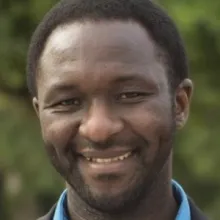
Mentor: Ibrahim Garba (Karai-Karai), Senior Researcher, Udall Center/Native Nations Institute; Assistant Research Professor, College of Public Health
Ms. Clark will work with the Collaboratory for Indigenous Data Governance as part of a National Science Foundation (NSF) grant to analyze research governance documents from universities and professional societies in several countries to map how these institutions and bodies understand and codify their obligations regarding the stewardship of Indigenous data.
Sophia Hammer
Junior; Political Science and Global Studies (minor in Spanish)
Academic Interests: Border policy, food security
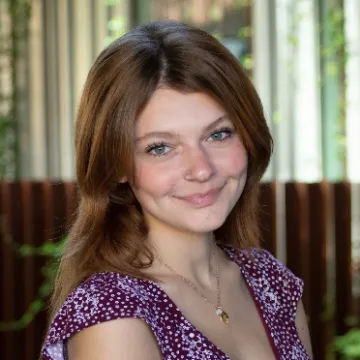
“I am curious to see how indigenous governance and practices that have been used to support the environment for so long can be implemented more and can have an effect on environmental policy… I believe that through working with Indigenous communities on environmental concerns we can better serve the land we call home.”
Project: Develop Indigenous Governance Program Curriculum
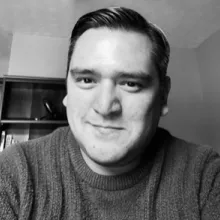
Mentor: Torivio Fodder, Indigenous Governance Program Manager, Udall Center/Native Nations Institute
Through her work with Dr. Fodder, Ms. Hammer will get hands-on experience in academic programming and curriculum coordination for the Indigenous Governance Program (IGP). As an IGP Program Assistant, she will have the unique opportunity to engage in the practical development of Indigenous governance curriculum and the chance to participate in one of the most innovative Indigenous education programs in the world.
Kaylee Jackson
Senior; Law (Minor in English)
Academic Interests: legal protection and empowerment of under-served communities
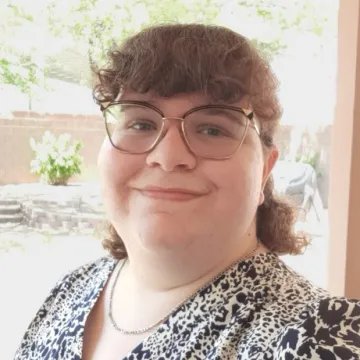
“I am interested in being mentored by an experienced research professional because I believe that real-world experience and on-the-job training are more beneficial than academic or book learning, especially in topics like environmental and Indigenous governance. Although having a strong academic background is important, I have found that it is usually insufficient to fully understand the complex social, economic, and political reality of these challenges.”
Project: Make a Direct Impact on Native Nations
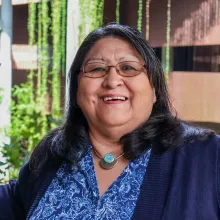
Mentor: Joan Timeche, Executive Director, Native Nations Institute
Ms. Jackson will work with NNI’s Tribal and Direct Services team as a Program Assistant to coordinate educational and service-based events for Native nations and Peoples. This will offer her the unique opportunity to get direct exposure to working with tribal governments and their communities from a top-tier organization in this area.
Dani Kouyoumdjian
Senior; Law & American Indian Studies (Double major with a minor in Russian)
Academic Interests: Indigenous governance, food sovereignty, traditional conflict resolution, land and water rights
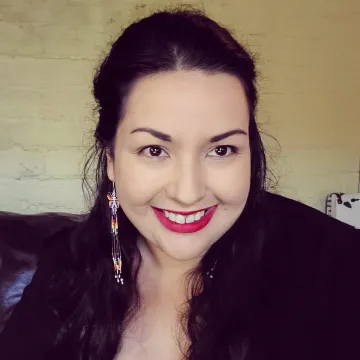
“My primary area of research concerns the intersectionality between Indigenous self-governance and cultural reclamation. It is my firm belief that a tribal nation cannot truly obtain sovereignty without prioritizing cultural preservation.”
Project: Strengthen Tribal Self-Determination
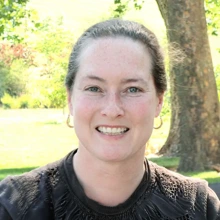
Mentor: Miriam Jorgensen, Research Director, Native Nations Institute
Ms. Kouyoumdjian will have the opportunity to “choose her own research adventure” while working with Dr. Jorgensen on topics like child welfare, landback, digital inclusion and the needs of tribal citizens who live off reservation. As a Program Assistant working with Dr. Jorgensen, she will have the opportunity to choose from among these or other projects available in Fall 2023. The focus of her work in these areas will be on coordinating various research operations including data coding, data analysis and writing policy recommendations.
Abraham Macy
Senior; Public Management & Policy
Academic Interests: Environmental justice, superfund sites
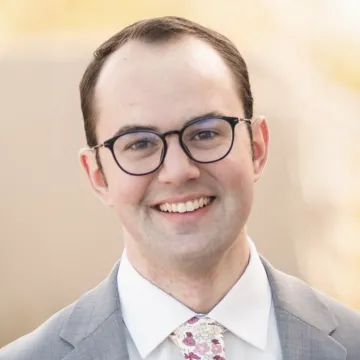
“I grew up on a ranch in rural Montana and saw the impact of poor policy decisions on my family and the families in my town. Many of these decisions were on the local level but this background has influenced me to pursue an education and career in environmental law and policy.”
Project: Work on the Cutting Edge of Clean Energy + Agriculture
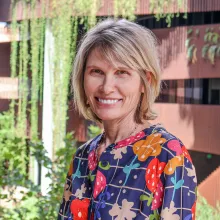
Mentor: Andrea Gerlak, Director, Udall Center; Research Professor, Environmental Policy Programs, Udall Center; Professor, School of Geography, Development and Environment
Mr. Macy will get the opportunity to work on a $1.2M-dollar research project with Dr. Gerlak to help shape the future of agrivoltaics, which refers to the simultaneous use of land for growing crops and collecting solar energy. As a Program Assistant under Dr. Gerlak, Mr. Macy will participate in innovative research on renewable energy that also touches on agriculture development and practices, as well as recent water constraints in Arizona. His work will also involve engaging with stakeholders in these sectors to better understand challenges and opportunities for the deployment of agrivoltaics in Arizona.
Maddy Niffenegger
Senior; Environmental Studies and Geography (Double major)
Academic Interests: Environmental policy, climate change solutions, sustainable communities
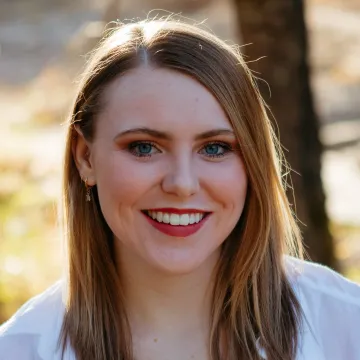
“If I want to become a leader in climate policy in the future, I feel being taught by example is key. Working hands-on with a current professional would not only be an enriching experience in the realities of creating environmental/Indigenous governance, I think it would also be highly beneficial in my journey to achieve my goals. Advice from a mentor such as this would be a great help as I try to navigate my future and my last year as an undergraduate.”
Project: Decolonize Data with the Collaboratory for Indigenous Data Governanc
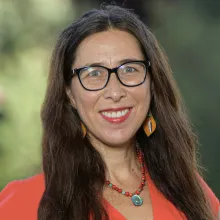
Mentor: Stephanie Russo Carroll, Assistant Research Professor, Native Nations Institute/Udall Center; Associate Director and Manager, Tribal Health Program; Associate Professor, Public Health and American Indian Studies Graduate Program, College of Public Health; Affiliate Faculty, College of Law
Ms. Niffenegger will get the chance to work with the top scholar on Indigenous Data Sovereignty in the United States as a mentee of Dr. Stephanie Russo Carroll. Dr. Carroll is a founding member and leader of the Collaboratory for Indigenous Data Governance, which works on a range of Indigenous data policy issues including data law and policy and decolonizing/ Indigenizing data across a broad range of topics like human health, the environment, and law. As a Program Assistant, Ms. Niffenegger’s work will focus on formatting and organizing documents, analyzing data, and writing policy recommendations for a topic that is building international momentum in policy and academia right now.
Andrew Pongratz
Junior; Philosophy, Politics, Economics and Law (PPEL) and Economics (Double major with a minor in Spanish)
Academic Interests: Socio-legal and behavioral economics
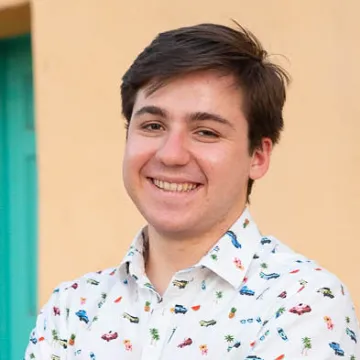
“I am interested in pursuing higher-level research in my future career and maybe even become further involved in academia later in life. I would be thrilled at the opportunity to explore this budding research interest further, and to work with and learn from expert faculty with lots of experience in teaching, research, and service. I would like to hone and channel my research skills to be more effective at developing policy proposals and using my work to benefit the greater community.”
Project: Mitigate the Negative Health Effects of Increased Heat
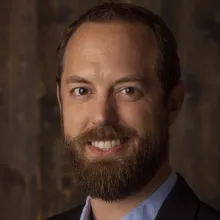
Mentor: Ladd Keith, Faculty Research Associate, Environmental Policy Programs, Udall Center; Assistant Professor in the School of Landscape Architecture and Planning
Mr. Pongratz will join a nationally-renowned heat scientist to support efforts to reduce the negative health effects of rising temperatures. As a Program Assistant under Dr. Keith, he will have the unique opportunity to explore the emerging area of heat policy and governance in the U.S. through work with an interdisciplinary research team on a variety of research projects and other engagement opportunities that reach stakeholders at the local, national and international levels.
Sam Rose
Junior; Public Health (Minor in Arabic)
Academic Interests: Environmental science and public health
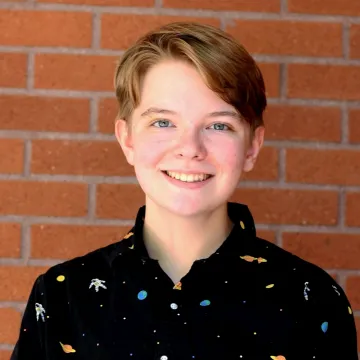
“I have limited experience in researching social sciences and I would like to have an experienced professional help guide me through the process and act as my mentor. I would like to learn from them how to not only conduct research but also act as a leader so that can make a change in the world and eventually give back and act as a mentor for other people like me.”
Project: Conserve Migratory Species Across International Border
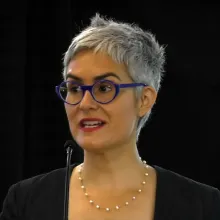
Mentor: Laura López-Hofman, Research Professor, Environmental Policy Programs, Udall Center; Professor, School of Natural Natural Resources and the Environment; Affiliated Faculty, James E. Rogers College of Law
Mr. Rose will work with Dr. López-Hoffman to protect migratory species across borders by helping researchers understand what has led to the current state of conservation policy. The National Science Foundation-funded EMIGRA Project examines what factors led to current governance of North American migratory species and how rural/local/Indigenous communities interact with and value the species and ecosystem services certain animals provide humans. As a Program Assistant, he will be a key team member as he works to collect foundational data via archival research (in English and Spanish) on migratory species conservation, attends regular team meetings and science communication training workshops and receives high-level professional mentorship from members of the Laura López-Hoffman Lab.

